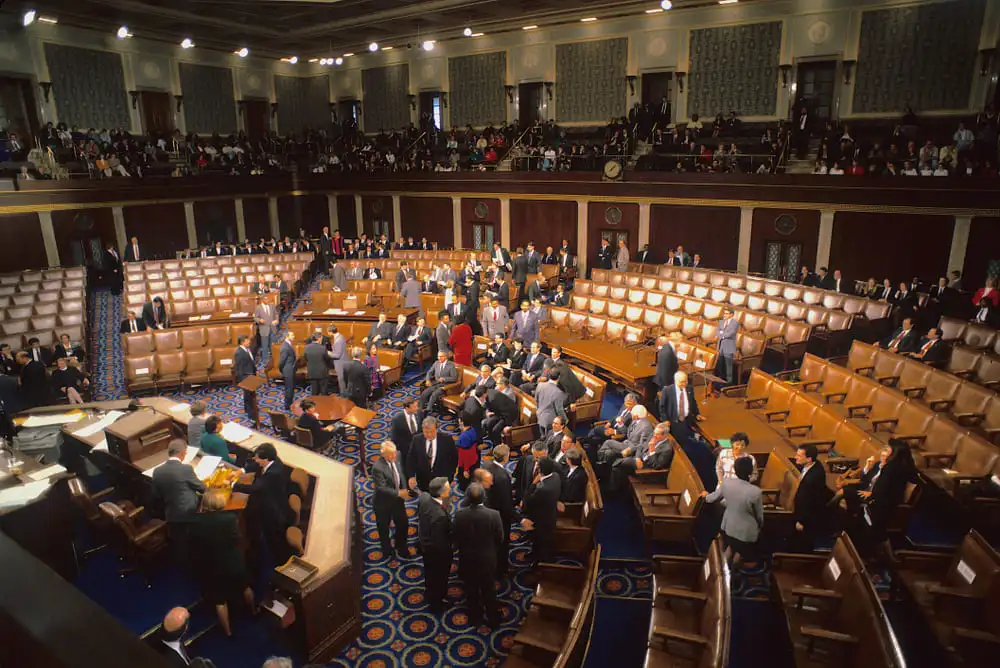
On Friday, the House of Representatives passed the Inflation Reduction Act, now being touted as a climate bill. Multiple news outlets referred to the passage of the bill a “win for climate and healthcare,” including USA Today. Forbes described the passage of the Inflation Reduction Act as a “major accomplishment for Democrats . . .struggling to pass Biden’s ambitious social and climate” initiatives. At the same time, Forbes also admitted that even though the bill’s moniker infers that it is meant to fight inflation, the bill will not do very much to quell inflation.
The bill will set the cap on prescription drug out-of-pocket costs at $2,000. This provision of the bill does not start until 2025, however. The Affordable Care Act’s subsidies for those getting insurance under the Marketplace will remain in effect for three more years. The bill also adds multiple incentives for green energy.
The House passed the bill Friday by a vote of 220-207. The bill now heads to President Joe Biden’s desk to be signed into law.
The Penn Wharton Budget Model completed an early analysis of the bill, and, while one of the first arguments for the bill held that it would help American families by easing inflation, the PWBM shows “low confidence the legislation will have any impact on inflation.”
However, Senator Joe Manchin (D-WV), told CNN that he “respectfully disagrees” with that assessment. PWBM is a non-partisan group that conducts studies on legislation or policies to determine the fiscal impact of such.
The PWBM isn’t the only respected entity to echo that sentiment. The Congressional Budget Office – again, a non-partisan group – said that the bill would likely have any effect on inflation. The CBO added that inflation might even rise, even slightly, due to the ramifications of the bill.
Even progressive Bernie Sanders (D-VT) acknowledged on the floor of the Senate Sunday that the bill would likely do little to ease inflation. At least 230 economists sent a letter to Congressional leaders; they slammed any claim that the Inflation Reduction Act would remotely soften surging inflationary woes. The letter read: “The inaptly named (IRA of 2022) would do nothing of the sort and instead would perpetuate the same fiscal policy errors that have helped precipitate the current troubling climate.”
Those who are truly happiest about the bill include environmentalists. The Wilderness Society called the legislation a “breakthrough” when it comes to the climate.
Americans are deeply divided on climate change policies, according to a July 2022 Pew Research poll. Unfortunately, this divide is also along political lines. This poll shows that 82 percent of Republicans think that the policies put forth by the Biden Administration will take the country in the wrong direction. However, 79 percent of Democrats (and Democratic “leaners”) say that Biden’s policies are a step in the right direction for Americans.
Here’s what Americans can agree on when it comes to climate policies:
- 90 percent favor planting one trillion trees to absorb carbon emissions
- 79 percent said they support tax credits to encourage businesses to develop technology involving carbon capture
- 72 percent believe in requiring power companies to use more energy from renewable sources
The Inflation Reduction Act does contain $1.5 trillion in spending to plant trees and $300 billion in corporate subsidies to build solar and wind projects, green batteries, and develop carbon capture.
At the same time, the bill is also projected to possibly cost 30,000 jobs, according to the Tax Foundation, a tax policy nonprofit organization. GDP would also be down by 0.2 percent, and after-tax income is expected to be less for taxpayers “across every income quintile over the long run.”
Not only did Democrats just raise taxes on Americans making over $20,000 yesterday, they’ve just pledged to raise taxes EVEN MORE if they get the House again after the midterms.
— Lauren Boebert (@laurenboebert) August 13, 2022
Defeating them has NEVER been more important.
The Tax Foundation says that the bill would likely make inflation worse by “constraining” the productivity of the economy over the long run.
With the passage of the Inflation Reduction Act, House Democrats chose to build a future where everybody has a shot, not just the already-powerful. pic.twitter.com/q83y98FMeu
— President Biden (@POTUS) August 12, 2022
There has been no date announced as to when President Biden will sign the bill.





